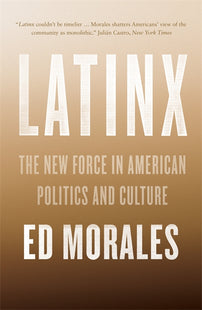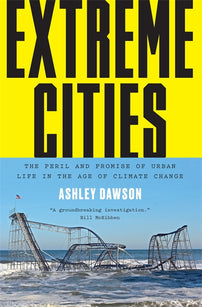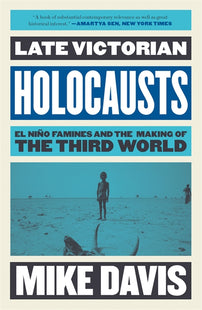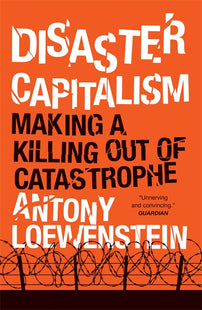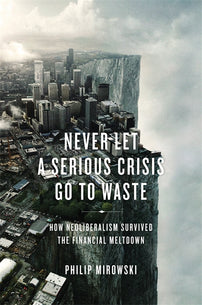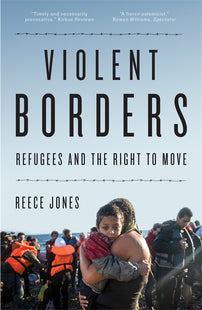Puerto Rico: Belonging to, But Not Part of
The Trump administration's delay in sending real aid to Puerto Rico after Hurricane Maria is a distasteful display of colonialist racism. But it's par for the course: our citizenship has always been second-class.

“We’re American citizens. How can Trump turn his back on us?” This is one of the pleas I’m hearing over and over again about the humanitarian crisis in Puerto Rico caused by Hurricane Maria. While it is a distasteful display of colonialist racism that the Trump administration takes its time to decide how much help Puerto Rico deserves, after pulling out the stops for Miami and Houston, ostensibly because there’s not “a really big ocean” separating them from Washington, it’s kind of par for the course. Our citizenship has always been second-class.
Going back as far as the 1901 case Downes v. Bidwell, decided by some of the judges who ruled on Plessy v. Ferguson, a new colonial turn of phrase entered the American vocabulary. Puerto Rico should not be considered fit for becoming a state in the Union, but would be instead an “unincorporated territory” “belonging to, but not part of,” the United States. Belonging to, but not part of. Separate, but also not equal. Sort of.
We were bodies, then, that should not mix with the body of white America, for we were already stained with mixture, through both our fraught tropical sweatbox of consensual and non-consensual unions, and the legacy of our Iberian antecedents, who had been festooned in Moorish veils of uncertain North African origin. Unwashed bodies, unworthy bodies, and like the body of Homer Plessy — the Louisiana Creole passenger booted from the whites-only section of the train — a body marked for destruction, the object of violence, literal and figurative.
So it is no coincidence that, weeks after Charlottesville, and the many other spectacles of implied and literal violence that have marked the Trump reign, the mainstream media has apoplectically ping-ponged between the Colin Kaepernick-inspired National Anthem kneeling protests and the tragedy of tens of thousands of Puerto Ricans root-shocked and desesperados by a landscape of twigs where Ceiba trees grew, zinc roofs shattered into shards, and a simmering, rising tide of noxious, contaminated water flowing through what were once quaint Caribbean towns. The kneeling protests staged by African American athletes were a silent rejection of internal colonialism, while the Shock Doctrine military-P3 complex that's about to overtake Puerto Rico is the end game of a century or so of external colonialism.
Even complaints about Trump’s slow-motion doddering on Maria from well-meaning, proud Puerto Ricans who had served in the U.S. military, insisting that their sacrifice deserved respect, seemed to forget that the Civil Rights Movement in the mid-20th century had been significantly motivated by the angry disappointment African American and Mexican-American soldiers endured when they returned home to Jim Crow segregation and dehumanization after having fought in the Good War of Tom Brokaw’s Greatest Generation. This is 2017, we often claim, how can this be? It’s because the language of “belonging to, but not a part of,” and “separate but equal,” has never been formally written out of the narrative that is still America.
So here we were, vulnerable in our beautiful brown bodies, at the intersection of mainland and island, diaspora and isleñidad, and perhaps the ruling dialectic of the late-capitalist world system, debt and crisis. The debt, all $147 or so billion of it, is of course, a fiction, but the crisis is all too real. The privatization frenzy promised by PROMESA, the congressionally-authorized debt collection agency, is poised to accelerate at unimaginable speed once the spin of the Trump casino government roulette wheel picks out the winning bids. Planeloads of desperate Boricuas will evacuate to Central Florida, Texas, and beyond, while prime beach real estate is gobbled up by billionaires like John Paulson.
While it is the only possible humanitarian solution, a rescinding of the debt seems highly unlikely, and its nagging accumulated weight will be used to institute a permanent state of crisis. A major motif of this crisis is the infrastructure, which — like our bodies, subjected to violence — was exposed, poorly maintained. Electrical cables ran along haphazardly installed posts crisscrossing the island, constantly failing for years before the storm, and now lay fallen like the mass casualties of war. Collapsed like the stick-figure balloons that advertise car washes, Puerto Rico’s infrastructure is in a grand mal seizure.
To perform the crisis mode, the military phase has already begun with the deployment of U.S. Army North deputy commander Richard C. Kim, and under-the-radar DOD private contract firms like Strategic Response Partners, who have already been spotted on San Juan streets. Despite some favorable reports of remote mountain area rescues and deployments to deliver diesel gas for electric generators and restore cell towers, the fragile fabric of this island society has frayed almost completely. And the reality show ethos of the current administration continues to distract: Trump has even invited Jenniffer González, the effervescent Resident Commissioner, or non-voting representative to Congress from Puerto Rico’s right-wing pro-statehood party, on Air Force One to discuss his plans, presumably alongside Omarosa Manigault, if she’s not fired yet.
While we need to continue to fight for debt relief, the calls for a military presence — more to help restore infrastructure than to stop and frisk looters, imagined and real — and massive federal investment for the rebuild will be made, from my heart at least, reluctantly. The absolute destruction that has been visited on the island has temporarily rendered pro-independence politics untenable. Of course they must reappear in time, but for now we have to insist that the U.S. take economic responsibility for miring Puerto Ricans in debt (with considerable help from the the island's political and banking elites) and putting them in the path of an extreme atmospheric event fueled by the protracted sluggishness to react to climate change and fossil fuel addiction.
Hurricane Maria has been compared to Katrina because of the extent of the damage and suffering, and its potential to illustrate that Trump, as Kanye West famously suggested about George W., doesn’t care about black and brown people. But New Orleans emerged from the storm with some areas decimated, others intact. Maria has spread its destruction in egalitarian fashion across an entire island about the length and width of Massachusetts, and made it a deforested, barren wasteland, at least for now. It is not so much a disaster area as it is a disaster nation. A nation of bleak, hot, humid, thirsty radio silence.
Puerto Rico weathered the loss of electric power for months on end after hurricanes in the 80s and 90s, and although arduous, it was not often life-threatening. Most horrific now are the health threats, the homelessness, the months of rationing, potential environmental disasters, and what will most likely continue as a lingering problem in many remote corners of the island: the inability to communicate. Puerto Ricans now send messages to radio stations and social media in the hopes that someone might hear them, like a NASA probe filled with recordings of Louis Armstrong, gamelan music, and Glenn Gould launched into deep space on the remote chance that someone will listen. The lack of communication with hospitals, mountain towns, buried seaside shacks, is also artificially lowering the death count, which hovers between 15 and 20.
Of course we know, after centuries of colonialism, that we are resilient. AF. And when one hears the peculiar sing-song of the Puerto Rican lilting, consonant-dropping Afro-Caribbean language on the fluttering airwaves, it’s clear that the will to survive is strong. It’s embedded in the mountains, the same ones that have stood for centuries without wavering, against the shearing winds that coalesce off the coast of West Africa and spin chaotically into the Northeastern peaks of the Luquillo Range.
I can hear those disembodied spirits of Puerto Rico holding a press conference right now, near the damaged radio towers of the El Yunque National Rainforest. They’re saying “We’re doing a great job, an amazing job a tremendous job, for an island in the middle of an ocean.” And no one thinks they’re lying.
Ed Morales is an author and journalist who has written for The Nation, The New York Times, Rolling Stone, the Village Voice, and the Guardian, among many others. He is the author of Living in Spanglish (St. Martins) and The Latin Beat (Da Capo Press), and Latinx: The New Force in American Politics and Culture, forthcoming from Verso. He is currently a lecturer at Columbia University’s Center for the Study of Ethnicity and Race, and a fellow of a new working group studying the Puerto Rico debt crisis at the Center for the Study of Social Difference.
